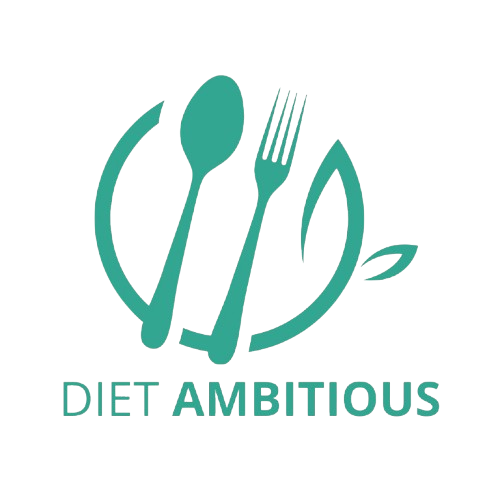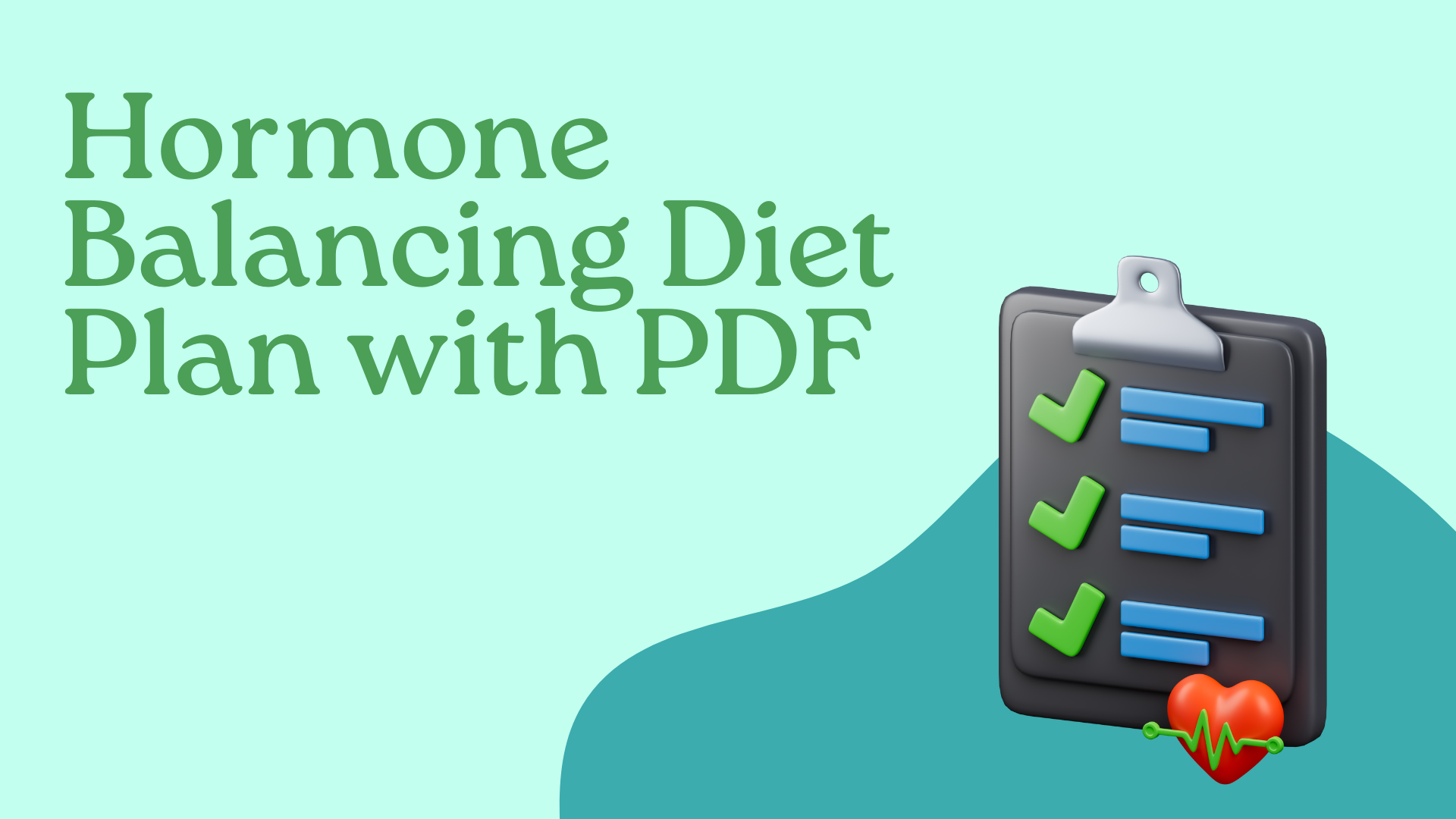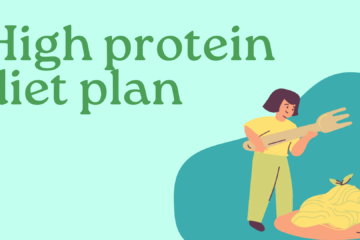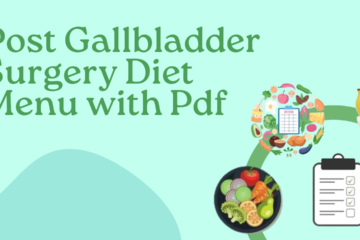Maintaining balanced hormones is essential for overall health and well-being. Hormonal imbalances can lead to a variety of issues such as weight gain, mood swings, fatigue, and more. A hormone-balancing diet can help regulate your body’s hormonal functions, promote a healthy metabolism, and support your overall health. This 7-day meal plan is designed to support hormonal balance by incorporating foods that support healthy hormone production and regulation.
Here’s a 7-day hormone-balancing diet plan that includes nutrient-dense foods, healthy fats, lean proteins, and antioxidant-rich fruits and vegetables.
Table of Contents
Day 1: Clean Start with Green Veggies and Lean Protein
Breakfast: Scrambled eggs with spinach, avocado, and a side of mixed berries (rich in antioxidants)
Lunch: Grilled chicken breast on a bed of mixed greens (kale, arugula) with olive oil and lemon dressing
Snack: A handful of almonds (rich in magnesium)
Dinner: Baked salmon (high in omega-3 fatty acids) with roasted Brussels sprouts and quinoa
Day 2: Gut Health and Hormone Support
Breakfast: Chia seed pudding with coconut milk, topped with fresh strawberries and a drizzle of honey
Lunch: Lentil and chickpea salad with cucumber, tomato, and tahini dressing
Snack: Carrot sticks with hummus (fiber and healthy fats)
Dinner: Grilled turkey with roasted sweet potatoes and a side of steamed broccoli
Day 3: Anti-Inflammatory Foods
Breakfast: Smoothie with spinach, almond milk, flaxseeds, blueberries, and a scoop of protein powder
Lunch: Quinoa and roasted vegetable bowl (zucchini, bell peppers, and onions) with a lemon tahini dressing
Snack: Apple slices with almond butter
Dinner: Grilled chicken with avocado salsa and roasted cauliflower (anti-inflammatory benefits)
Day 4: Protein and Healthy Fats for Hormonal Health
Breakfast: Greek yogurt topped with chia seeds, walnuts, and sliced kiwi
Lunch: Grilled salmon with avocado and a side of quinoa salad (cucumbers, tomatoes, and parsley)
Snack: Celery with almond butter
Dinner: Baked cod with roasted beets and a side of sautéed kale
Day 5: Fiber-Rich Foods for Hormonal Balance
Breakfast: Oatmeal topped with chia seeds, flaxseeds, and fresh raspberries
Lunch: Grilled chicken with a side of steamed asparagus and sweet potato
Snack: Mixed berries with a handful of walnuts
Dinner: Stir-fried tofu with broccoli, bell peppers, and brown rice (fiber-rich vegetables)
Day 6: Hormone-Balancing Fats and Protein
Breakfast: Avocado toast on whole grain bread with a side of scrambled eggs
Lunch: Tuna salad with mixed greens, olive oil, and lemon juice
Snack: A small handful of pumpkin seeds
Dinner: Grilled shrimp with zucchini noodles and a side of roasted sweet potato
Day 7: Antioxidant-Rich Foods for Detoxification
Breakfast: Smoothie with kale, pineapple, banana, chia seeds, and coconut water
Lunch: Grilled chicken with a side of quinoa and sautéed spinach
Snack: A handful of mixed nuts (rich in healthy fats)
Dinner: Baked turkey with roasted carrots and a side of steamed broccoli
Key Foods to Include in a Hormone Balancing Diet
- Healthy Fats: Avocados, nuts, seeds, and fatty fish like salmon help balance hormone levels and promote overall health.
- Leafy Greens: Kale, spinach, and arugula provide essential nutrients that support hormonal balance.
- Protein: Lean protein from sources like chicken, turkey, tofu, and legumes helps maintain muscle mass and keeps blood sugar stable.
- Berries: Blueberries, strawberries, and raspberries are full of antioxidants that can help combat oxidative stress and inflammation.
- Fiber-Rich Vegetables: Cruciferous vegetables like broccoli, cauliflower, and Brussels sprouts help detoxify the body and regulate hormones.
- Whole Grains: Quinoa, brown rice, and oats are excellent sources of fiber and help stabilize blood sugar, which is crucial for hormone regulation.
Tips for Success on a Hormone Balancing Diet
- Stay Hydrated: Drink plenty of water throughout the day to keep your body hydrated and support digestion and metabolism.
- Limit Sugar: Excess sugar can disrupt hormonal balance, so aim to avoid sugary processed foods.
- Incorporate Herbal Teas: Green tea, peppermint tea, and chamomile can support hormone health and reduce stress.
- Avoid Processed Foods: Processed foods often contain unhealthy fats, added sugars, and preservatives, all of which can disrupt hormone balance.
- Get Plenty of Sleep: Hormones are heavily influenced by sleep patterns, so prioritize getting enough rest.
Conclusion
A hormone-balancing diet focuses on consuming nutrient-dense, whole foods that help regulate your body’s hormones. By following this 7-day meal plan, you can support your hormonal health and feel better overall. Incorporate a variety of healthy fats, lean proteins, fiber-rich vegetables, and antioxidant-rich fruits to promote balance and well-being.
Remember that every individual is different, so if you have specific concerns or medical conditions related to hormones, it’s always a good idea to consult with a healthcare professional or nutritionist before starting any new diet plan.




